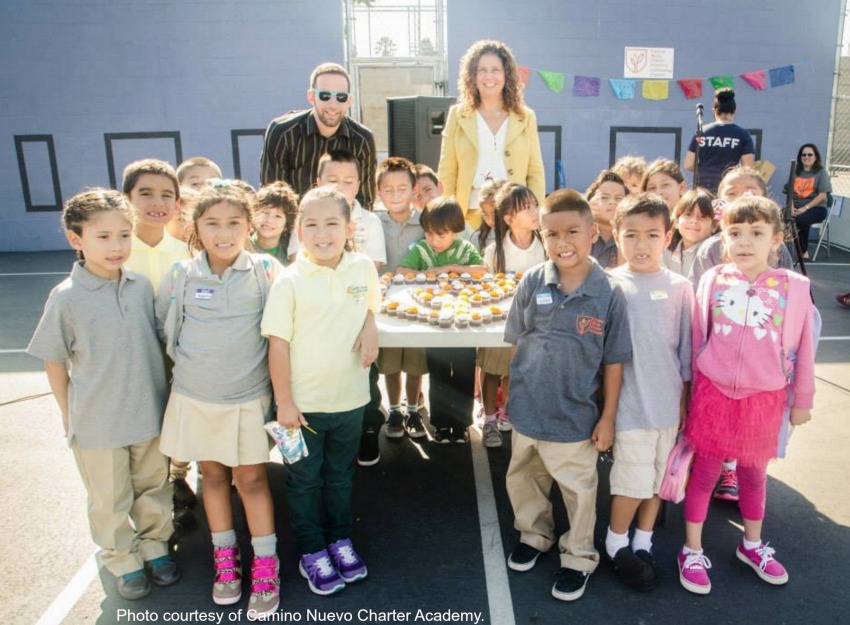Ana Ponce is one of the most influential leaders in Los Angeles. Currently, she is the CEO of Camino Nuevo Charter Academy. Camino Nuevo charter Academy is a network of high performing charter schools that serves over 3,200 pre-K through 12th grade students in the MacArthur Park neighborhood of Los Angeles.
When she was four years old, Ana came to the United States with her family and settled in the Pico Union neighborhood of Los Angeles. Her parents had no formal education, but they valued education and had aspirations for her and her brother. Their own educational experiences and their community framed the context of their goals for Ana and her brother. Where Ana’s parents came from, people would stay in school until about the 8th grade and then get a job. Because they didn’t understand the educational system in the U.S., Ana’s parents challenged her educational trajectory.
As the youngest of seven children, Ana was first in her family to go to high school and complete college. Her brother ended up dropping out of school in the eighth grade, and Ana had to convince her parents to let her attend high school. They let her continue her education in high school with the condition that she would start working. From the age of 14, Ana learned how to juggle work and school.
While in high school, Ana became more aware of the dropout problem in her community. There were some students who were on a college prep track in her high school and others who were not. In high school, she did have a teacher who really pushed her to think about attending college. Eventually, Ana found her way to Middlebury College in Vermont.
When she announced that she would be going to college and leaving the family home, Ana’s parents were upset. They felt betrayed because she was not just going to college, but she was leaving the family home as a single woman and bringing shame to the family. This experience influenced Ana’s philosophy that educators not only need to prepare children for college success, but they also need to bring the parents along in the journey.
“We cannot judge the kids who cannot leave. We have to bring the parents along in the educational journey,” Ana said. “My own experience has influenced my belief that education isn’t just about preparing children for college success, it’s also about educating children in conjunction with their parents and building a partnership with them.”
When Ana looks at a student, she sees a child who is anchored in his family, in his school, and in his community. She believes that educators need to view children as being part of a larger familial and societal unit to leverage the strength and resiliency that comes from those units.
Ana’s philosophy about educating students in partnership with their families and communities is what makes her a luchadora, a fighter for all of us, and an example of how we can tap into the resources that we have more collectively to support children.
Adriana Maestas
She has worked in the non-profit sector, in the K-12 system, and in higher education in various capacities. When she's not writing stories or working on media projects, Adriana trains instructors to teach online at the University of California, Irvine.
She holds a bachelor’s degree in political science from the University of California, Irvine and a master’s degree in public policy from Claremont Graduate University.
Latest posts by Adriana Maestas (see all)
- The Coronavirus Pandemic Poses Unique Problems for Latinx Communities - March 24, 2020
- 25 Chicas de Preparatoria se Graduan Del Instituto de Verano para Negocios y Liderazgo en Los Ángeles - July 24, 2019
- 25 High School Girls Graduate From Summer Institute for Business and Leadership in Los Angeles - July 22, 2019
- Margeaux Randolph Ofrece Educación Técnica a Estudiantes en el Sur de Los Ángeles - April 4, 2019
- Margeaux Randolph Brings Tech Education to Students in South LA - March 29, 2019

